
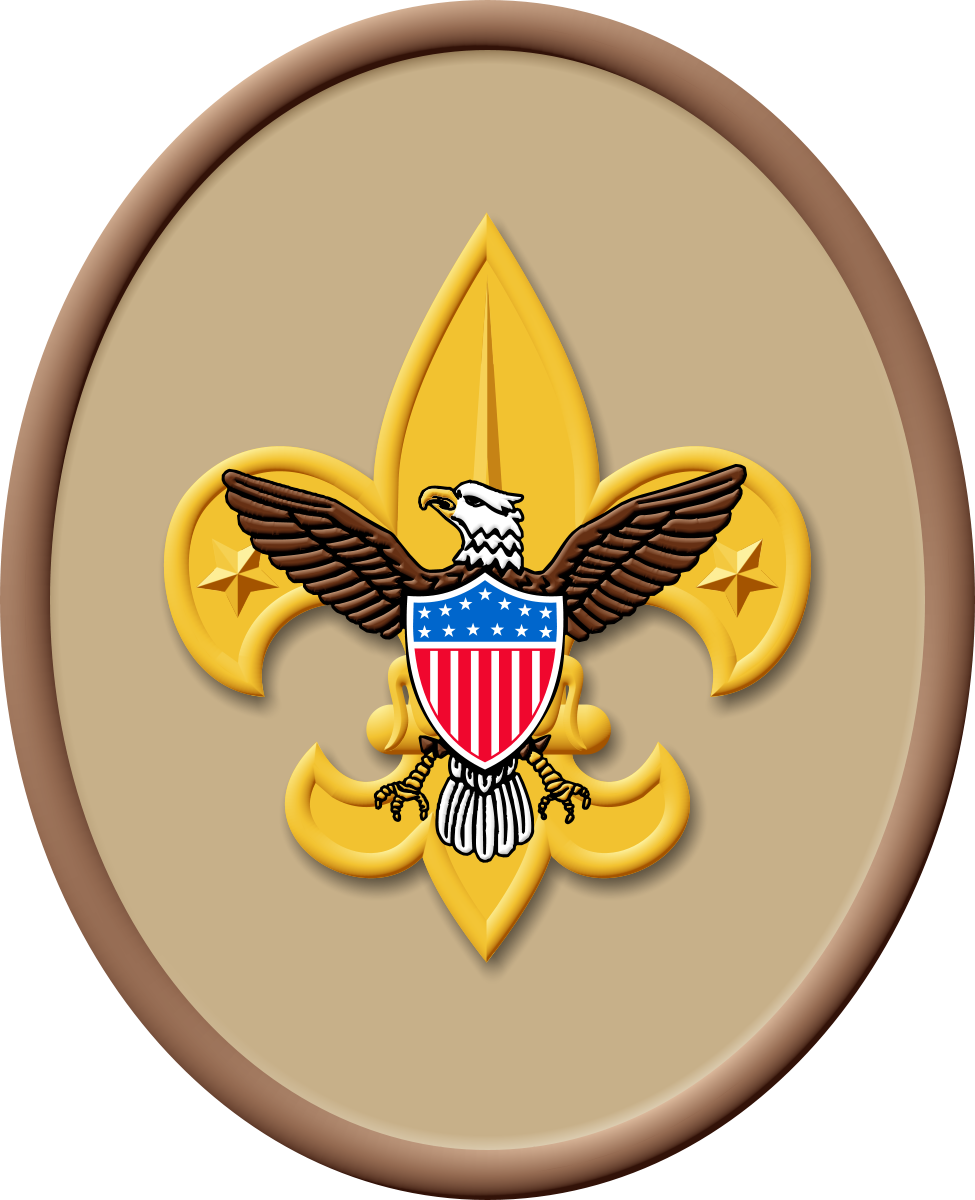
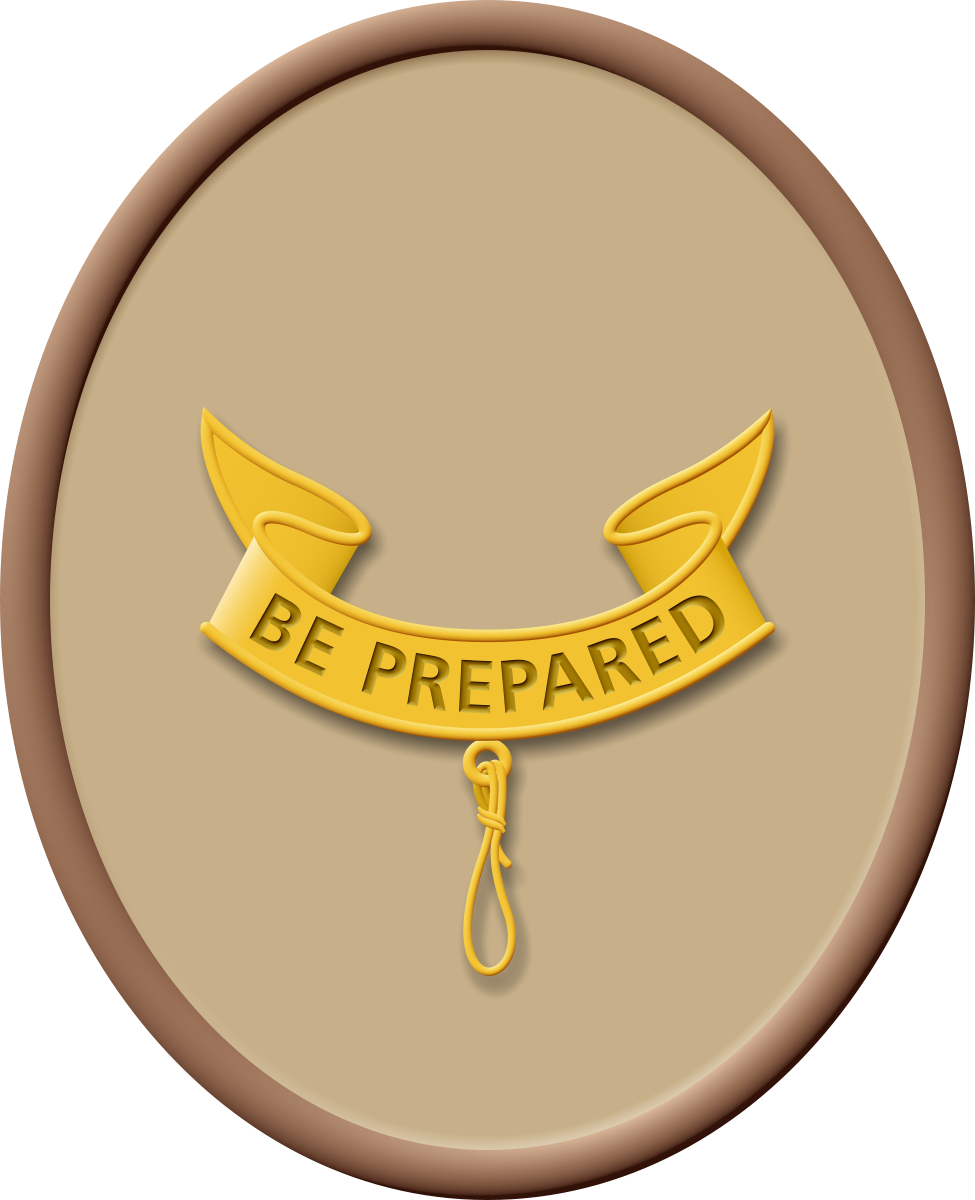
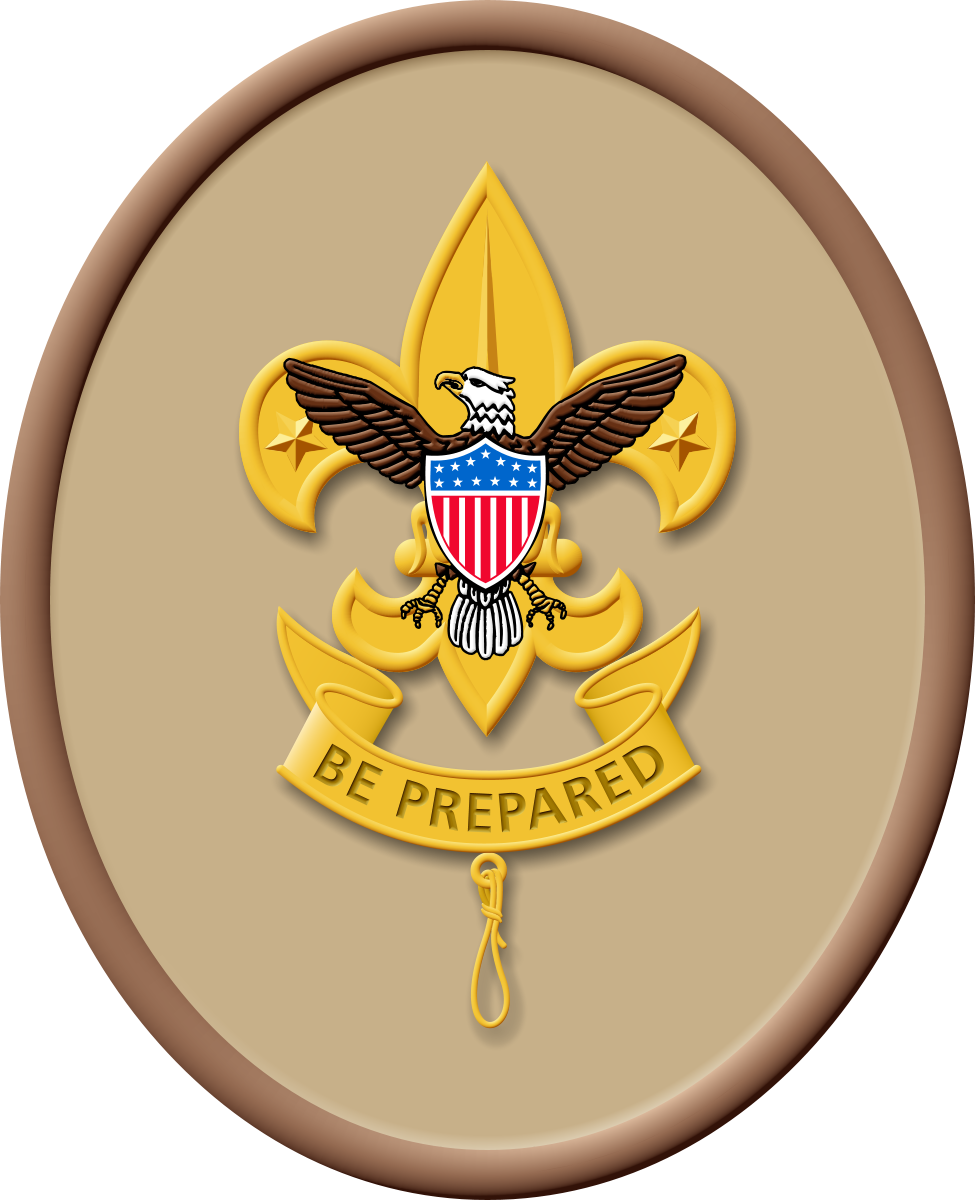
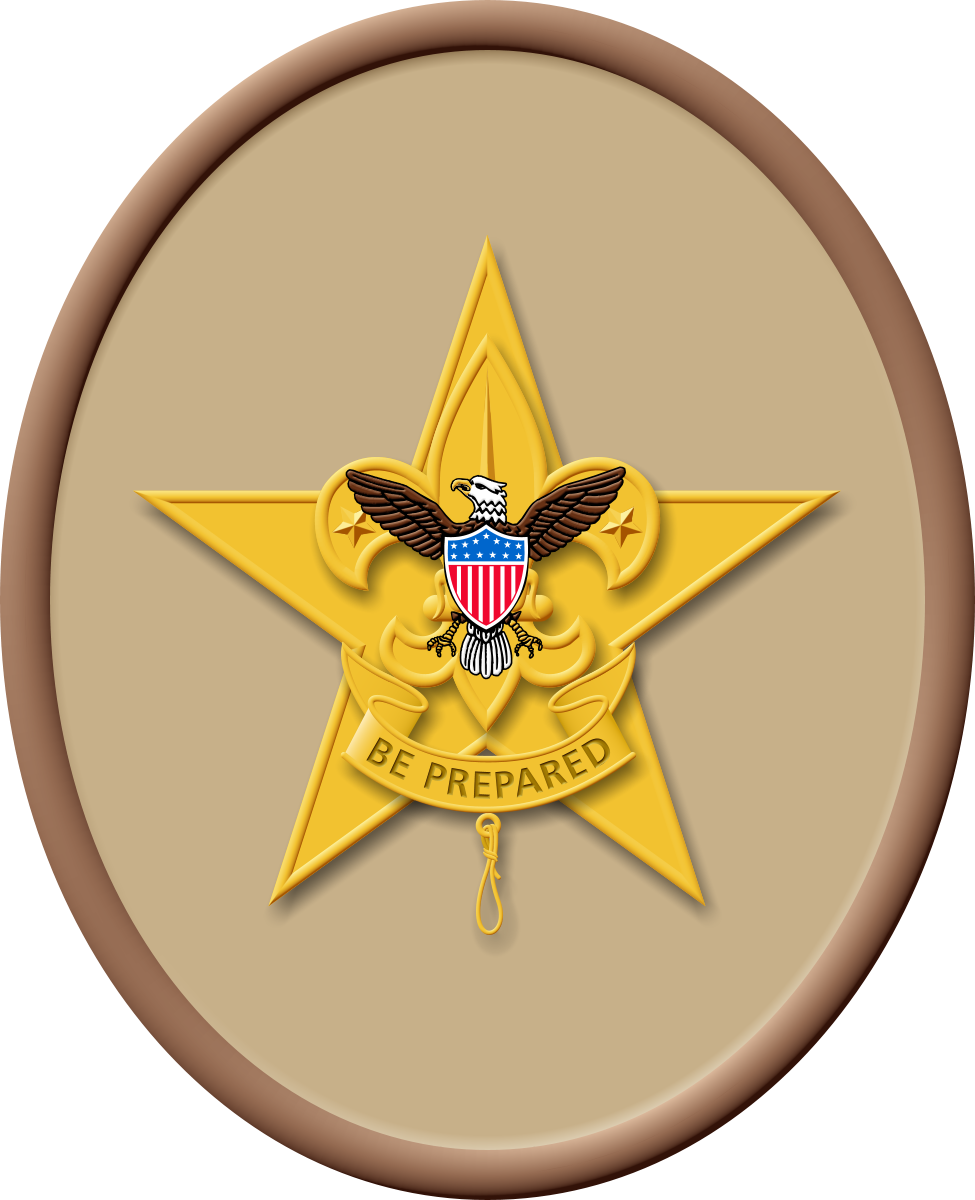
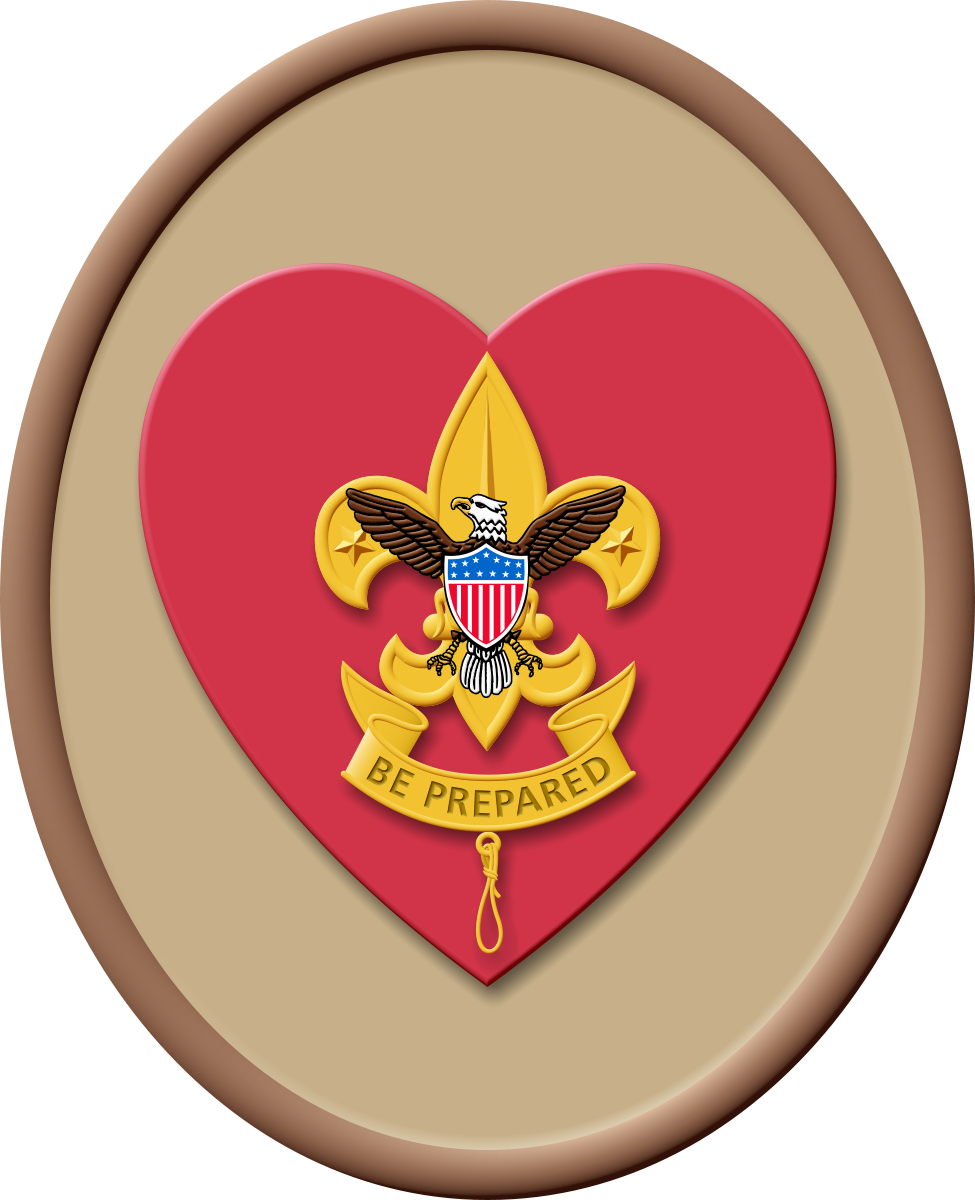
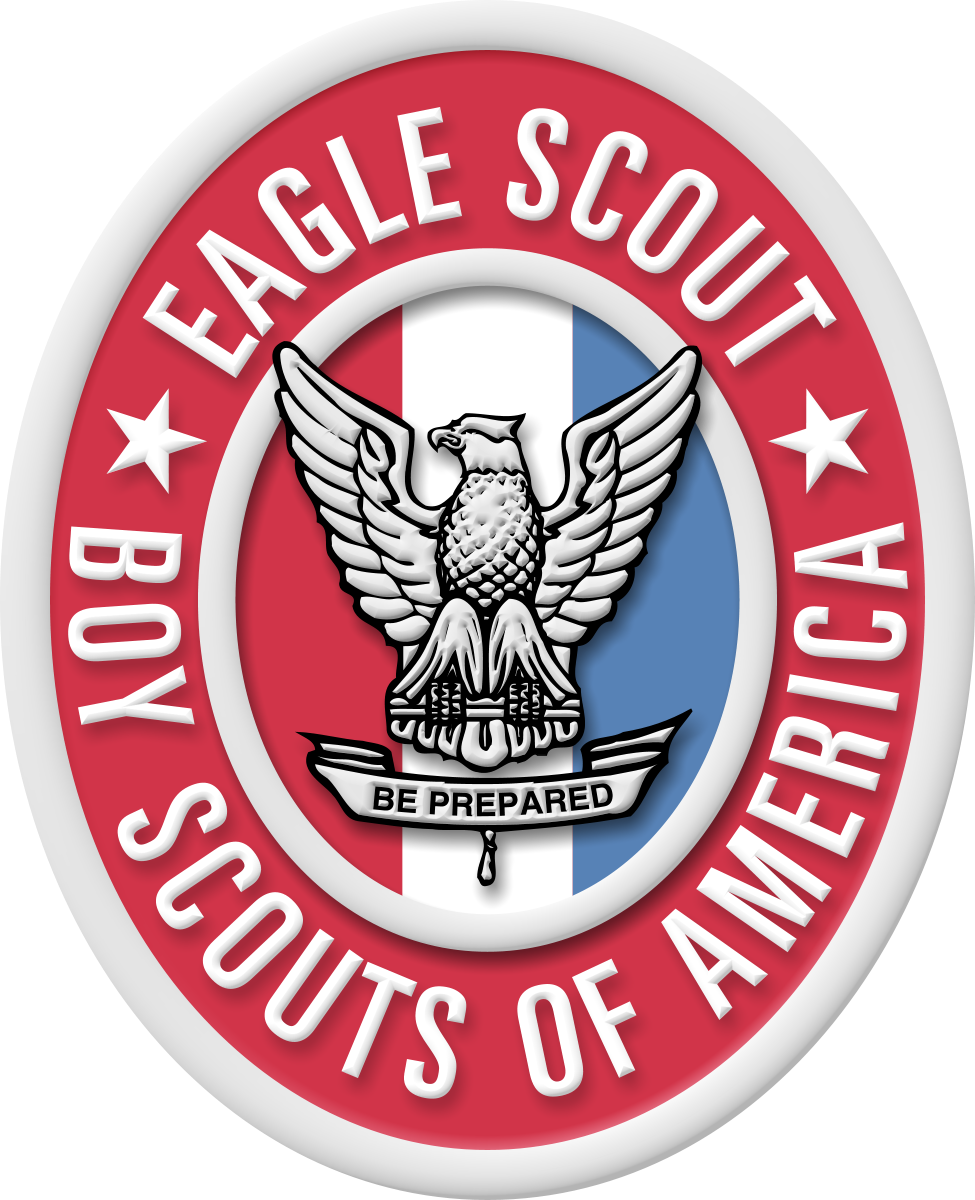
 |
 |
 |
 |
 |
 |
 |
| Scout | Tenderfoot | 2nd Class | 1st Class | Star | Life | Eagle |
Advancement is the process by which youth members progress through the ranks in the Scouting program by the gradual mastery of Scouting skills. Ranks are simply a means to an end, not an end in themselves. Everything your Scout will do is designed to help him advance and earn these ranks, from the day he joins until the day he leaves our program.
There are no Merit Badge requirements for Scout, Tenderfoot, Second Class, or First Class Ranks. The focus of a new Scout's first year will not be Merit Badges but on working toward advancement in rank. New Scouts work on parallel requirements simultaneously so a new Scout may not advance for a while then suddenly advance several ranks at once. Though a new Scout will not earn many Merit Badges in his first year, he will earn a few. More importantly he will spend the bulk of his time working toward First Class rank.
The Boy Scout Handbook does provide the requirements for the merit badges required for the rank of Eagle. Chapter 7 of the Boy Scout Handbook describes how your son can get started earning merit badges. It provides a list and brief description of each merit badge that may be earned. For a more detailed description and a list of the requirements, a specific merit badge book should be checked out from the Troop Librarian. A good understanding of the specific merit badge book is essential to successfully completing any merit badge. A Boy Scout Requirements book, summarizing all the merit badge requirements, can be obtained from the Scout Shop. This book provides the requirements for every merit badge. However, it is not a substitute for the individual merit badge book, which provides an enormous amount of information specific to the merit badge.
Scouts may work on any merit badges at any time. The Scout begins by obtaining approval and a blue Merit Badge card from the Scoutmaster. The Scout then speaks to the Committee Merit Badge Coordinator to get the names and telephone numbers of potential counselors. After selecting a counselor, the Scout sets up an initial appointment to review the requirements with the counselor and determine the counselor's expectations on each requirement. The Scout begins work, meeting periodically with the counselor to review progress and assess overall comprehension of the subject.
Your son is responsible for working on his own merit badge. A merit badge counselor is not required to hold formal sessions to help your son along. Your son is to contact the counselor to discuss what he wishes to do, or what he has completed. Some merit badges state that the Scout cannot proceed on a given task until he has conferred with the merit badge counselor. Other merit badges have specific time periods over which tasks are to be tracked or accomplished. The merit badge counselor will hold your Scout to the requirements, as stated in the merit badge pamphlet. In this manner, each merit badge is completed to the same standard, regardless of the Scout or counselor involved. Please remember that merit badges are for the Scout's benefit. To benefit, the Scout (not Mom, or Dad or another Scout) must accomplish the requirements. After your son has completed all the requirements for the merit badge, he turns in the blue merit badge card to the Advancement Chairman. He will receive his merit badge at the earliest opportunity and receive his merit badge card at the next Court of Honor. Do not loose this card!
Once a Merit Badge is complete and signed off, the Scout will turn in the Blue Card to the Scoutmaster who will endorse completeion of the requirements and forward to the Advancement Chairperson who will record the achievement in the troop database.
On occasion, a merit badge will be offered to the entire troop. It will be announced well in advance of the meeting(s) by one of the Scouts and your son is responsible for signing himself up and getting the information on the time and location of the meeting.
The Scouting Family is an extension of your family. Please, encourage (don't pressure) him to work hard and learn skills. If possible, help teach or be present at meetings to learn with your Scout. Your personal involvement will have a profound impact on your son's character development and advancement. Although Scouting is a wonderful program, and our Troop is highly active, Scouting is unfortunately not for every young man. You are urged not to pressure your Scout to advance in rank quickly. Pressuring a youth to advance in rank too quickly may inadvertently lead him to a decision to withdraw from the program (a Scout has until the day of his 18th birthday to make Eagle Scout). On the other hand, if you do not encourage him to advance, he will not.
Parents within our troop are asked to serve as merit badge counselors. A counselor is responsible for sitting down with the Scout and going over the requirements for completion of the merit badge and ensuring they have been fully met and the Scout has a thorough understanding of what he must learn while working on the badge. The counselor then completes an Application for Merit Badge card ("blue card") and returns it to the Scout. On occasion a counselor will coordinate group meetings for several Scouts working on the same merit badge. But remember, it is the Scout's responsibility to complete the requirements and review them with the counselor. The requirements for each badge can be found at www.meritbadge.com.
A current list of counselors can be obtained from the Committee Merit Badge Coordinator. You may sign up to be a merit badge counselor for as many badges as you are interested in teaching but we recommend that new counselors sign up to teach no more than five merit badges. You may, of course, sign up for more. For more information on this program, review the Merit Badge Counselor's Handbook and Merit Badge Counselor's Guide, both available from the Committee Merit Badge Coordinator. As the handbook states, you do not need to be an expert in the topic, but it often helps to have some interest or experience. Additional information on exact procedures can be obtained by talking with the Merit Badge Coordinator, Advancement Chairperson, Committee Chairperson, or Scoutmaster. In general, parents or guardians shall not sign their sons advancement requirements/merit badge blue cards. Parents or guardians may counsel their son for any advancement requirement or merit badge requirements if that parent or guardian is qualified and registered counselor for it. However, a proxy will sign and ensure that the scout has met the standards and is keeping with the spirit of the scout oath and law. There will, of course, always be special circumstances under where exceptions will be made, but these will be addressed on an individual basis.
Any time your Scout advances rank or earns a merit badge he receives a card at our Court of Honor Ceremony. Make sure he keeps all cards until he turns eighteen(18) years old.
Boy Scout advancement, a four step process:
As stated earlier, when a Scout advances, he will be recognized as soon as possible, preferably at the Troop meeting. He will also be recognized a second time at a formal public ceremony called a Court of Honor. The Court of Honor provides formal recognition for achievement and incentive for other Scouts to advance.
Our Troop normally holds a formal Court of Honor every three months or as requested by the Advancement Chair. All families are asked to attend and guests are welcome. Every boy who advances deserves to be recognized in front of his family and friends. The Court of Honor is the young man's special night.
When a Scout has completed virtually all of the rank and merit badge requirements for Eagle and is ready to start on his Eagle project, he will need make an appointment with the Scoutmaster and the Troop's Eagle Advisor to receive an Eagle packet. The Eagle Advisor will discuss the packet and answer questions. The Scout must select his project, get the required signatures, plan and carry it out, complete the final write up and submit the package for final Board of Review prior to his 18th birthday. The Eagle Advisor will work with the Scout when requested to complete the package and Eagle Application, but it is the Scout's responsibility to complete the package to the best of his abilities. The Eagle candidate may be asked to provide an oral presentation covering his project to the Troop Committee prior to going before his Eagle Board of Review.
When completed, the Eagle package will be sent to the District Advancement Chairman for review. A formal Eagle Board of Review, which consists of two representatives from the Troop Committee and the District Advancement Chairman (or his designee), will be held with the Scout to discuss his Eagle project, experiences in Scouting, school experiences, and his future plans. The Board can (1) recommend that the Scout make improvements to the package and return it for signature, (2) approve the package and forward it on to Council; or (3) disapprove the package for Eagle altogether. Inasmuch the Eagle package is being reviewed, so to is the candidates fitness for advancement to the rank of Eagle. If the package is disapproved or the candidates rank advancement is denied, the Scout has appeal options that he can pursue.
Eagle Court of Honor and the reception which follows will be held at a location of the Scout's choice. Depending on the state of Troop finances, the Troop may contribute towards the purchase of a cake for the occasion. All other costs will be borne by the Scout and his family. The Eagle Court of Honor is coordinated through the Committee, Scoutmaster, and Patrol Leaders Council. How the Eagle Court of Honor is conducted is, in large measure, up to the Eagle Scout to decide. It is his special moment.